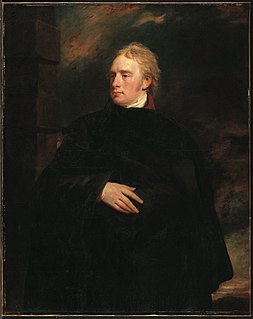A Quote by Samuel Taylor Coleridge
The words in prose ought to express the intended meaning, and no more; if they attract attention to themselves, it is, in general, a fault.
Related Quotes
The definition of good prose is proper words in their proper places; of good verse, the most proper words in their proper places.The propriety is in either case relative. The words in prose ought to express the intended meaning, and no more; if they attract attention to themselves, it is, in general, a fault.
Words in prose ought to express the intended meaning; if they attract attention to themselves, it is a fault; in the very best styles you read page after page without noticing the medium. Works of imagination should be written in very plain language; the more purely imaginative they are, the more necessary it is to be plain.
In general, I would think that at present prose writers are much in advance of the poets. In the old days, I read more poetry than prose, but now it is in prose where you find things being put together well, where there is great ambition, and equal talent. Poets have gotten so careless, it is a disgrace. You can’t pick up a page. All the words slide off.
In nonviolent communication, no matter what words others may use to express themselves, we simply listen for their observations, feelings, needs, and requests. Then we may wish to reflect back, paraphrasing what we have understood. We stay with empathy, allowing others the opportunity to fully express themselves before we turn our attention to solutions or requests for relief.
The way you feel is your point of attraction, and so, the Law of Attraction is most understood when you see yourself as a magnet getting more and more of the way you feel. When you feel lonely, you attract more loneliness. When you feel poor, you attract more poverty. When you feel sick, you attract more sickness. When you feel unhappy, you attract more unhappiness. When you feel healthy and vital and alive and prosperous-you attract more of all of those things.
I met too frankly preposterous, if it weren't for their banal evil, politicians and pastors who told knowing lies about the evils of homosexuality in order to attract bigger flocks to their churches and more votes and power to their corrupt councils. LGBT people seem to be being scapegoated more and more just as at the same time in more enlightened countries more and more freedom to express themselves, marry, be given official intersex status and so on is offered.
Words are delicate instruments: How to use them so that, after having read the poem, the taste remaining is not of the words themselves, but of a thought, a situation, a parallel reality? If not used appropriately, words in poetry are like the ugly remains of food after eating. What I mean is that readers will reject words if they don't serve to shift attention from themselves to somewhere else.





































